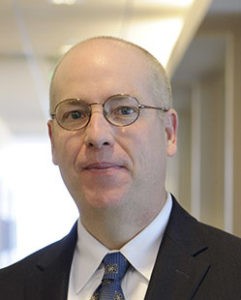My wife might tell you that I seem more comfortable than most in staking out a confrontational, or even controversial, position and then defending it as if I were in a bare-knuckled brawl with my life at stake. It’s hard for a long-time litigator like me to leave that mindset at the office, and there is probably more truth in her observation than I’d like to admit.
As a change of pace, though, I want to say some things that shouldn’t be the least bit controversial; they should be simple statements of fact: Climate change is real. While it poses an imminent threat to us all, it already is becoming a lethal fact of life for some of the globe’s poorest and most vulnerable populations.
The statistics are sobering. According to NASA, the last century saw a 2.12 degree increase in average global surface temperature, with most of that increase coming in the last 40 years and with 2016 and 2020 tying as the hottest years ever recorded.
This deceptively slight uptick in temperature is having profound effects. According to that same body of NASA research, Greenland and Antarctica have combined to lose an average of 400 billion (yes, billion with a “b”) tons of ice annually in recent years. As a result, sea levels have risen 8 inches in the last century, nearly doubling the rate of the previous century, and the rate of sea level rise is increasing slightly but consistently each year.
“Climate change is not simply a fact. It is a crisis, and one of our own making.”
Many of our global sisters and brothers are at risk of losing not only their homes and their livelihoods but their very lives as severe weather events become routine. Climate change is not simply a fact. It is a crisis, and one of our own making.
Except evangelicals don’t believe this
Shockingly, this news hasn’t penetrated the walls of America’s white evangelical churches. A recent Pew Research Center study shows that, while 65% of all Americans believe our government isn’t doing enough to fight climate change, only 24% of evangelicals agree. A separate 2015 Pew Research Center study found that, while 50% of Americans then believed climate change was largely man-made, that view was shared by only 28% of evangelicals.
Perhaps veering back into my controversial ways, I think this disconnect can be explained by only one thing. Evangelicals, while proudly declaring their fealty to biblical inerrancy, simply do not believe the Genesis creation narrative is true, at least not in any sense that matters.
Before turning to the Good Book, though, let’s pause a minute over a particularly bad one: Phillip Gosse’s Ompholos: An Attempt to Unite the Geological Knot. In a bizarre attempt to square increasingly convincing physical evidence of evolution with a fundamentalist reading of scripture, Gosse’s 1857 book claimed that God created fossils exactly like we see them today, and then scattered them about when he formed the world 6,000 years ago, making it seem much older than it really is. Don’t ask me to explain exactly how, but this line of thinking led Gosse to the, for him, inescapable conclusion that both Adam and Eve were created by God with belly buttons.
“It seems that many evangelicals became so trapped in defending the minutest factual details of the opening chapters of Genesis that they became lost in the belly buttons and missed out on the great spiritual truths God wanted us to learn.”
I must admit I’ve never spent time or energy puzzling over Adam’s belly button or lack thereof, nor have I lost sleep over the penetrating theological question posed by Clarence Darrow 75 years later at the so-called Scopes Monkey Trial — a question that left a fundamentalist William Jennings Bryan uncharacteristically at a loss for words: Whom did Cain marry? Apparently, this question is a big deal for others. It certainly is for the fundamentalist apologist Ken Ham, who views our ability to answer that question as somehow key to our Christian faith.
I’m not a “young earther” and, in all candor, I doubt there was an Adam and Eve as such who could have had belly buttons or not, and I likewise doubt that there was a Garden of Eden that we could somehow pinpoint on a map. That doesn’t mean, though, that I doubt that the Bible is divinely inspired. Instead, what I personally hear in the Genesis account is the same God who later would speak to us in the metaphors and analogies in Christ’s parables using the power of symbol and myth to communicate deep spiritual truths to us about God, about ourselves, and about the world in which we live.
Somehow, somewhere, it seems that many evangelicals became so trapped in defending the minutest factual details of the opening chapters of Genesis that they became lost in the belly buttons and missed out on the great spiritual truths God wanted us to learn. I think revisiting three of those truths would go a long way toward restoring a healthy respect for the world in which we live, and for our divine charge of caring for it as if we really believe what God’s word has to tell us.
The God who creates
The first of those great biblical truths is that God is the God who creates, not the God who created. I believe in God’s omnipotence. But to hold that belief as firmly as I do raises an immediate question upon reading the first chapter of Genesis: Why did it take six days? Why couldn’t God have just said, “Shazam” (or the Hebrew or King James English equivalent) and be done with it all? What is God trying to tell us about God by giving us a story of incremental, dare I say “evolutionary,” creation?
“God is telling us that God’s life with creation is one of a current ongoing relationship, not one of a completed past event.”
I’m no theologian, but I think God is telling us that God’s life with creation is one of a current ongoing relationship, not one of a completed past event. That the God who hovered over the waters in Genesis 1:1 before saying “let there be light” is the same God who could be found, even after the fall of Adam and Eve into sin, walking the garden “in the cool of the day” in Genesis 3:8.
Even long after the fall of Eden, we see a God who remains at work in the world. Put somewhat differently, on the seventh day, God may have rested, but God didn’t exit. We see the active, still-creating and nurturing God of Psalm 65, who “care(s) for the land and water(s) it,” “soften(ing) it with showers and bless(ing) its crops.” God did not simply create the heavens and the seas and walk away. In the words of Psalm 147, even now God is who “stirs up his breezes, and the waters flow.”
I wonder how differently evangelicals would view our world if they didn’t see it as God’s long-ago castoff that has largely served its purpose and is now just waiting to be burnt to an eschatological crisp in the “Last Days.” What if, instead, they saw it for what it really is — a living creation in daily communion with its Creator, a Creator who knows creation’s surpassing worth, and views it as a treasure warranting even God’s own daily care?
I fear that as long as evangelicals persist in seeing the creation as a mere expendable good that has outlived its sell-by date, and not as a miraculous daily gift from God, things will not change. We need for evangelicals to quit pondering Adam’s belly button, to stop staring at their own, and to become mindful of what God is telling us about the wondrous worth of the world around us.
A dominion that looks like God’s love
A second great biblical truth I hear God speaking to us is that — to the extent that we, as human beings, are to exercise God-given dominion or rulership over creation — it is a dominion that must look like God’s own perfect love for creation, not like our self-interested and destructive love of self at all costs.
“Dominion must look like God’s own perfect love for creation, not like our self-interested and destructive love of self at all costs.”
We know what God’s dominion looks like. We know that the Lord “has compassion on all he has made” and that God “open(s) (God’s) hand and satisif(ies) the desires of every living thing” (Psalm 145:9; 17). God’s dominion of creation is nurturing. It is restorative. It brings abundant life and bounty, not death and destruction.
How different does our own dominion look? It is one of strip mines, clear-cut rain forests and plastic-filled seas. It is one of pollution-spewing greed, waste and self-satisfaction. What change could we realize if we just took God at God’s word, and acted as if we truly believed that our dominion is to be one of careful stewardship and not one of thoughtless self-absorption?
To borrow from Francis Schaeffer’s Pollution and the Death of Man, “Fallen man has dominion over nature, but he uses it wrongly. The Christian is called upon to exhibit this dominion but exhibit it rightly; treating the thing as having value itself, exercising dominion without being destructive.”
I suspect such a change would mean even more to the world around us than picking Cain’s missing wife out of a lineup.
A holy calling, not a partisan question
Finally, the third great biblical truth I hear God telling us is that our creation care isn’t a partisan political question or a cultural phenomenon — a passing fad that can be easily donned or stripped like so many fig leaves. Instead, it’s a holy calling for all Christians and one that allows us to reclaim our rightful place as God’s children, sharing in God’s own kingdom work of restoring a fallen and suffering creation which, like us, was created for Christ’s glory.
In fact, if we believe what God is telling us in both Genesis creation accounts, faithful care for the world around us isn’t just a job made for us; we are literally people made for that job. It is holy work that brings us close to God, and in which God seems to delight.
“A suffering world is waiting, bearing the burden of our own greed and neglect.”
Truth be told, my favorite verse of the first two chapters of Genesis is probably Genesis 2:19. As a parent, I can almost imagine the love and laughter in God’s eyes as all the animals are brought one by one to see what Adam will name them, with God delighting in the joy the creation brought to Adam and envisioning the ways in which Adam could reflect God’s own Image and love back into the rest of creation by caring for it as God would.
We have badly neglected our work but, like the prodigal son, there is time yet for us to turn our faces home and step back into our rightful place. A suffering world is waiting, bearing the burden of our own greed and neglect, yet waiting “in eager anticipation for the children of God to be revealed” (Romans 8:19).
More importantly God is standing ready for our return to our rightful role. In chapter 2 of his marvelous Encyclical, Laudato Si, Pope Francis urges that “God, who wishes to work with us and who counts on our cooperation, can also bring good out of the evil we have done.” Amen and amen.

Chris Conley
Chris Conley is an attorney and graduate of the University of Georgia and of the Emory University School of Law. He and his wife, Mary, live in Athens, Ga., where both are members and deacons at First Baptist Church. They have one son, Aaron, who also is an attorney, and a miniature schnauzer, Oso, whose career path remains uncertain.
Related articles:
On climate change, the political divide has widened as more Americans overall express concern
Climate change is heating up the terrorist conflict in Africa’s Sahel region
I wrote about climate change; now I’m hearing from mean Christians | Opinion by Susan Shaw


